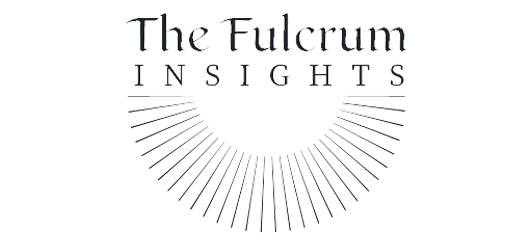Pre-note: This Fulcrum Insight is inspired by a string of conversations with senior leaders bringing to the table the challenge of dealing with misplaced attitudes and their impact in the workplace. So, while this insight holds sway in the bigger picture of human development, it is aimed at the domain of organisational dynamics.
Coming in three parts:
Part One: Influence – A Study in Concentrates
Part Two: The Realms of Organisational Dynamics
Part Three: The New Times
Part One: Influence – A Study in Concentrates
Influence is closely connected to concentrates. Consider how the aroma of a single drop of concentrated mint essence can linger in the air for days, demonstrating how even a minute amount of a potent substance can exert a lasting effect.
Similarly, because of the nature of magnetism that exists in the lower order of the energetic spectrum on planet Earth, destructive powers have come to exist in highly concentrated forms, such as how a small in numbers ‘elite’ – in many cases with the help of its red brigades human automatons – dominates in various contexts. In contrast, the good, because of its nature and origin, while existing in much larger proportion throughout history, is not as gathered, thereby having been unable to shift the balance in the process of creating space for a bright future for all. And yet, without the good’s driving instincts, humanity would not have been able to endure and survive the terrible inflictions of world history.
Over time, this state of affairs created a live feeding frenzy vortex that readily magnetises and sucks into it those who, for whatever reason, have become prone and vulnerable to its influence.
When teams or networks of individuals are guided into developing resolutely constructive mindsets, their collective attitude to life and the higher influence emanating through the process they are in exposes the inconsequential irrelevancy of the not constructive, which while it may be powerful inside of the transitory bubble of its sphere of influence, is driven by coarse, low-potency forces, and is quite meaningless in the bigger picture of the human existence. This is a concentrated paragraph, perhaps read it twice…
There is now a collective summons for humanity to realign itself with the greater causes that define human existence. Many of us feel this signal, together with the realisation that the settings of the new times call for breaking away from the old ways of ‘one rules all’, to the unwritten ways of collective responsibility, where it is up to those who care to be on a journey of self-discovery to find out how this works. There are no historical precedence and reference for these new forms of behavioural sciences – we are all child-like beginners in this newly emerging reality.
Part Two: The Realms of Organisational Dynamics
Whenever and wherever people work together, there is a need for the right kind of leadership and for someone – or a designated forum – to take the lead in specific contexts. One of the prime tasks of leadership being that of seeking out and bringing together those committed to and capable of constructive and creative advancement, rather than being drawn to burn up their energies on dealing with not constructive attitudes. This is a specific notation for those involved in organisational dynamics.
As a leader of self and others, to what degree are you committed to this approach that plays a vital part in ensuring the success of the project you are leading? From your experience, you are likely aware of the disruptive nature of lousy attitudes – how few individuals on a work floor can generate toxic atmospheres into what is otherwise a pleasant work environment.
Invest in what works, in the bright side, in good attitudes. Connect and bring together those who care. A company is a conversation in context. Engendering the right conversation with the influential few who care generates good vibes throughout the organisation. This is how things work in human affairs.
Part Three: The New Times
As has been written about in many previous Fulcrums, bit by bit, increasing every day, a tidal wave of new energies, originating from elsewhere, is imbuing planet Earth. By consciously making space for this energy in our lives, studying its nature and impact on human thought and behaviour, individuals can transform their own lives into beacons of hope and belief in the possibility of transformation and change, at many levels and contexts.
It is not humans that influence. It is that which flows through them that does.
With best wishes,
David
World Copyright©David Gommé 2025






